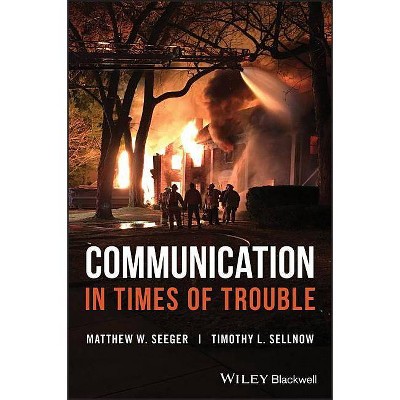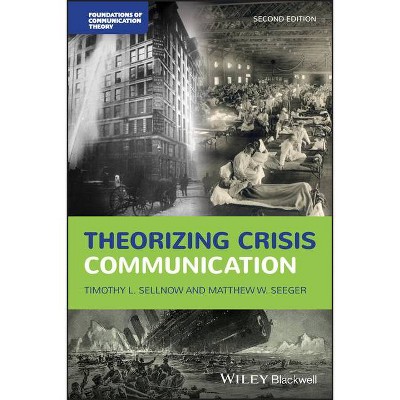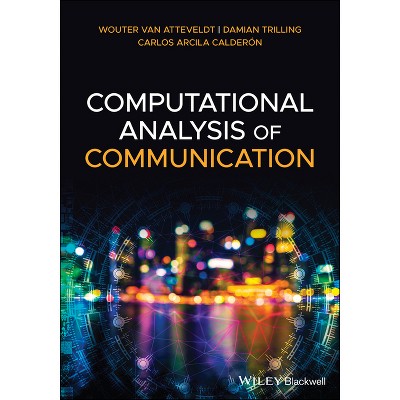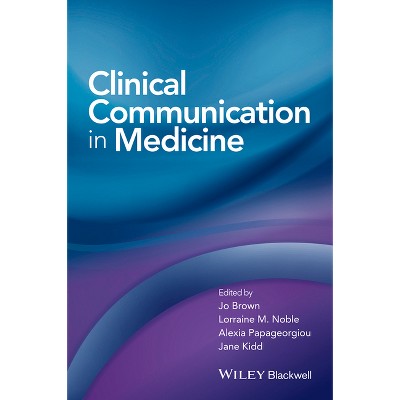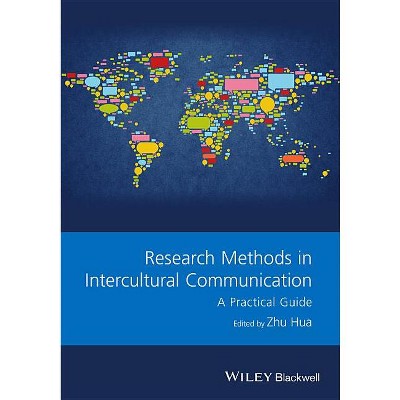Rethinking Culture in Health Communication - by Elaine Hsieh & Eric M Kramer (Paperback)

About this item
Highlights
- Rethinking Culture in Health Communication An interdisciplinary overview of health communication using a cultural lens--uniquely focused on social interactions in health contexts Patients, health professionals, and policymakers embody cultural constructs that impact healthcare processes.
- About the Author: Elaine Hsieh, Ph.D., J.D. is Professor at the Department of Communication, University of Oklahoma, and a Visiting Professor at the University of Illinois at Urbana-Champaign.
- 464 Pages
- Language + Art + Disciplines, Language Arts
Description
About the Book
"This book is published at a historical moment that is seared into everyone's memory and is likely to transform our everyday life and redefine who we are. On December 31, 2019, the World Health Organization (2020b) received a report of a cluster of cases of pneumonia in Wuhan, Hubei Province in China. By July 4, 2020, the COVID-19 pandemic has reached over 11 million cases and over 530,000+ deaths worldwide, including 2.8+ million cases and nearly 130,000 deaths in the United States (Johns Hopkins Coronavirus Resource Center, 2020). At this writing, the numbers are accelerating in growth. In 15 weeks, over 48 million Americans have filed for unemployment since mid-March when President Trump declared a national emergency concerning the COVID-19 outbreak (Menton, 2020; White House, 2020). Among those who lost jobs, poor Americans were hit the hardest: 39% of former workers living in a household earning $40,000 or less lost work; in contrast, among those making more than $100,000, 13% lost jobs (Smialek, 2020). Worse yet, it is estimated that COVID-19 may leave 27 million Americans to lose their employer-sponsored health insurance coverage after being laid off (Garfield et al., 2020) - during a time when healthcare coverage is essential to protect individual health and family wealth"--Book Synopsis
Rethinking Culture in Health CommunicationAn interdisciplinary overview of health communication using a cultural lens--uniquely focused on social interactions in health contexts
Patients, health professionals, and policymakers embody cultural constructs that impact healthcare processes. Rethinking Culture in Health Communication explores the ways in which culture influences healthcare, introducing new approaches to understanding social relationships and health policies as a dynamic process involving cultural values, expectations, motivations, and behavioral patterns. This innovative textbook integrates theories and practices in health communication, public health, and medicine to help students relate fundamental concepts to their personal experiences and develop an awareness of how all individuals and groups are shaped by culture.
The authors present a foundational framework explaining how cultures can be understood from four perspectives--Magic Consciousness, Mythic Connection, Perspectival Thinking, and Integral Fusion--to examine existing theories, social norms, and clinical practices in health-related contexts. Detailed yet accessible chapters discuss culture and health behaviors, interpersonal communication, minority health and healthcare delivery, cultural consciousness, social interactions, sociopolitical structure, and more. The text features examples of how culture can create challenges in access, process, and outcomes of healthcare services and includes scenarios in which individuals and institutions hold different or incompatible ethical views. The text also illustrates how cultural perspectives can shape the theoretical concepts emerged in caregiver-patient communication, provider-patient interactions, social policies, public health interventions, and other real-life settings. Written by two leading health communication scholars, this textbook:
Rethinking Culture in Health Communication is an ideal textbook for courses in health communication, particularly those focused on interpersonal communication, as well as in cross-cultural communication, cultural phenomenology, medical sociology, social work, public health, and other health-related fields.
From the Back Cover
An interdisciplinary overview of health communication using a cultural lens--uniquely focused on social interactions in health contexts
Patients, health professionals, and policymakers embody cultural constructs that impact healthcare processes. Rethinking Culture in Health Communication explores the ways in which culture influences healthcare, introducing new approaches to understanding social relationships and health policies as a dynamic process involving cultural values, expectations, motivations, and behavioral patterns. This innovative textbook integrates theories and practices in health communication, public health, and medicine to help students relate fundamental concepts to their personal experiences and develop an awareness of how all individuals and groups are shaped by culture.
The authors present a foundational framework explaining how cultures can be understood from four perspectives--Magic Consciousness, Mythic Connection, Perspectival Thinking, and Integral Fusion--to examine existing theories, social norms, and clinical practices in health-related contexts. Detailed yet accessible chapters discuss culture and health behaviors, interpersonal communication, minority health and healthcare delivery, cultural consciousness, social interactions, sociopolitical structure, and more. The text features examples of how culture can create challenges in access, process, and outcomes of healthcare services and includes scenarios in which individuals and institutions hold different or incompatible ethical views. The text also illustrates how cultural perspectives can shape the theoretical concepts emerged in caregiver-patient communication, provider-patient interactions, social policies, public health interventions, and other real-life settings. Written by two leading health communication scholars, this textbook:
Rethinking Culture in Health Communication is an ideal textbook for courses in health communication, particularly those focused on interpersonal communication, as well as in cross-cultural communication, cultural phenomenology, medical sociology, social work, public health, and other health-related fields.
About the Author
Elaine Hsieh, Ph.D., J.D. is Professor at the Department of Communication, University of Oklahoma, and a Visiting Professor at the University of Illinois at Urbana-Champaign. An award-winning author, Fulbright Scholar, and NIH-funded researcher, she has published extensively to examine the intersections of culture, language, health, and medicine in interpersonal and cross-cultural contexts. She is currently Associate Editor for Health Communication. She has served as the Chair of the Health Communication Division at the National Communication Association and as Associate Editor for the Journal of Immigrant and Minority Health (2010-2017).
Eric Mark Kramer, Ph.D. is Presidential Professor of Communication and Affiliate Faculty in the College of International and Area Studies and the Department of Film and Media Studies at the University of Oklahoma. He is Senior Editor of The Oxford University Research Encyclopedia on Communication, International and Global Communication, Associate Editor of the Journal of Intercultural Communication Research, a founding Director of the EU Institute for Studies in Comparative Civilizations, author and editor of 11 books.
Shipping details
Return details
Trending Non-Fiction






